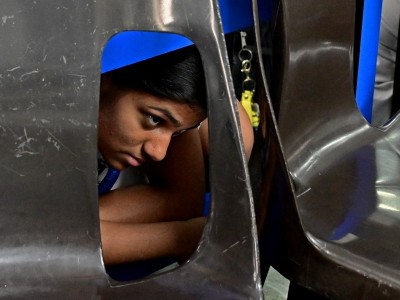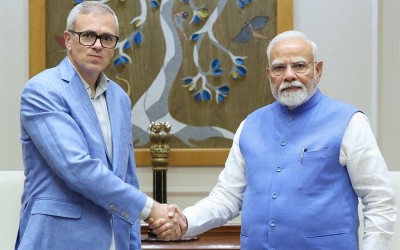 Canada
Canada
Under the Guise of Freedom: How Khalistan extremists threaten harmony in Canada
The recent attack by Khalistani extremists on Indo-Canadian devotees within the Hindu Sabha Temple in Brampton is a disturbing indicator of the growing influence and audacity of Khalistani extremists in Canada.
This incident isn’t just a singular act of violence; it represents a blatant disregard for the values of respect, harmony, and unity that Sikhism fundamentally upholds. Our Sikh Gurus taught us to embrace all communities and live peacefully, sharing love and compassion with all faiths and people.
The actions of these extremists, under the banner of a so-called “Khalistan,” directly contradict the teachings of Sikhism.
They are neither acting in the spirit of Sikhism nor respecting the sanctity of their own heritage. Khalistanis, who thrive on division and violence, have no right to identify themselves as Sikhs, for their actions tarnish the very foundation of the religion they claim to represent.
Equally troubling is the seeming indifference shown by Canadian authorities toward these violent outbursts. Canada prides itself on being a multicultural society, committed to promoting and protecting diversity.
Yet, the repeated violence and intimidation by Khalistani extremists against members of the Indo-Canadian community reveal a significant gap in the country’s multicultural framework.
It raises an unsettling question: How can a nation that claims to champion multiculturalism allow the unchecked growth of a group whose primary agenda is hate and division?
By failing to curtail these extremists, Canada risks alienating and endangering its own Indo-Canadian community, which forms a vital part of its cultural fabric.
The concerns surrounding the influence of Khalistani ideology in Canada aren’t new. For years, Indo-Canadians have raised alarms about Khalistani extremism gaining traction, yet little has been done. In the guise of “freedom of expression,” these extremists have been allowed to spread their divisive agenda freely. This isn’t about silencing dissent; it’s about recognizing the line between free speech and incitement to violence, which Canadian authorities seem reluctant to enforce.
The fact that such extremists operate with near impunity suggests that their influence has spread beyond fringe circles and may have even permeated political and law enforcement circles. This suspicion may not be unfounded, as some Canadian politicians appear to support these groups in a calculated play for votes, disregarding the safety and sentiments of other communities, particularly Indo-Canadians.
Indo-Canadians, and particularly Hindu-Canadians, are a minority within Canada, yet they face disproportionate threats due to the actions of Khalistani extremists.
For the sake of community safety and cohesion, it’s essential for Hindu-Canadians to step up and hold Canadian politicians accountable.
The rights of every community should be protected under the nation’s laws, and allowing one group to repeatedly incite violence against another contradicts the core principles of multiculturalism.
Indo-Canadians deserve equal protection, and Canada must reassess its approach to handling groups that actively propagate division and hate.
The recent attack in Brampton should serve as a wake-up call to Canadian authorities and communities alike. Extremism, no matter its origin, is a threat to any democratic society, and when allowed to thrive under the guise of “freedom of expression,” it undermines the freedoms of everyone. Canada must uphold its commitment to multiculturalism not by enabling extremists but by protecting peaceful citizens of all backgrounds. It’s time for Canadian leaders to show where they truly stand, for the future of multicultural harmony in their country depends on it.
(Image and text courtesy; Khalsasvox.com)
Support Our Journalism
We cannot do without you.. your contribution supports unbiased journalism
IBNS is not driven by any ism- not wokeism, not racism, not skewed secularism, not hyper right-wing or left liberal ideals, nor by any hardline religious beliefs or hyper nationalism. We want to serve you good old objective news, as they are. We do not judge or preach. We let people decide for themselves. We only try to present factual and well-sourced news.







